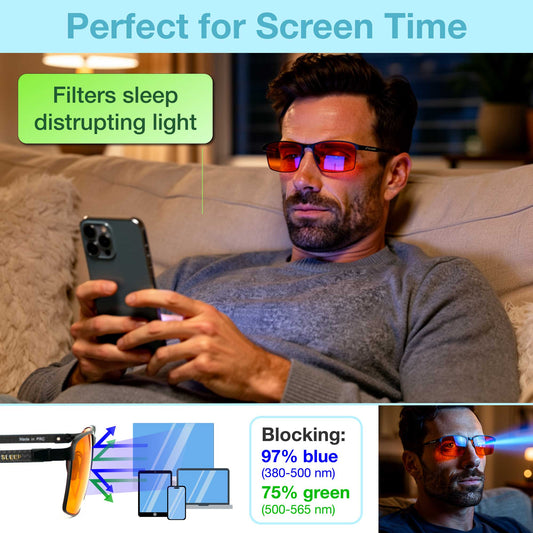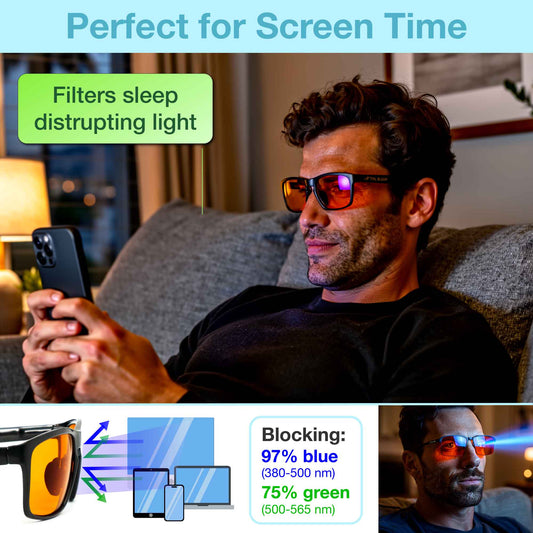8 Quick Points to Better Sleep


PRE-BED DAILY ROUTINE
2. GET A HEALTHY DOSE OF SUNLIGHT
Natural sunlight has an important role for a balanced biorhythm, telling your body if it is daytime or nighttime. As a part of this, it is regulating the production of serotonin, the direct precursor to the sleep hormone melatonin (3, 4, 5, 6). Make sure you get a healthy 15- to 30-minute dose of sunlight without sunglasses in the morning and later when the sun is close to its peak, for sufficient melatonin levels at night.
3. BLOCK OUT BLUE LIGHT BEFORE BEDTIME
Blue light is downregulating the body’s melatonin levels via specialized photoreceptors in the eyes (7, 8, 9). Due to the modern world’s transition to LED lights emitting large amounts of blue light, it is important to filter out this kind of light close to bedtime. If you want to continue working on your computer or watching TV, it is recommended that you use blue light blocking glasses.
4. TAKE MINERALS FOR BETTER SLEEP
Studies indicate that magnesium positively affects sleep via its connection to melatonin and stimulation of benzodiazepine receptors in the brain. Effects such as increased relaxation, stress reduction, and better sleep quality have been observed (10, 11, 12, 13). Zinc is another important mineral that has been shown to regulate sleep and improve memory (14).
5. RESTRICT EATING BEFORE BEDTIME
Studies suggest that the brain washes away toxins by circulating fluid during sleep (15, 16, 17). It is reasonable to believe that a good supply of blood supports the nightly brain detox process; therefore, make sure to restrict eating three to four hours before bedtime, in order to keep digestion shut off. In addition, several studies also have shown that late nighttime eating correlates with various types of sleep disorders (18, 19).
IN-BED ENVIRONMENT
6. SLEEP IN A PITCH-DARK ROOM
7. SLEEP IN COMPLETE SILENCE
Noise can make your adrenal glands release cortisol with reduced deep sleep and lower overall sleep quality. Sounds loud enough are likely (from about 40 decibels) to activate the brain's threat vigilance and, therefore, become aroused and potentially fully awakened (22, 23). Make sure to have a silent sleeping environment using earplugs if you see disturbances in your sleep.
8. SET THE BEDROOM TEMPERATURE TO 64°F (18°C).
The body's thermoregulation is strongly connected to the sleep quality, with lower body core temperature during the night. Studies have found a connection between rated sleep quality and colder bedroom temperature (24, 25, 26).
To see good results, aim for a bedroom temperate between 60°F (15.5°C) and 67°F (19.5°C).



BOOST YOUR SLEEP TODAY
You have the right to a good night's sleep.
-

 NEW
NEWPantos (Readers)
Regular price $49.90Regular priceUnit price per -
Rectangle (Readers)
Regular price $49.90Regular priceUnit price per -

 Sale
SaleEliteX Hyper
Regular price $39.90Regular priceUnit price per$44.90Sale price $39.90Sale -
EliteX Carbon
Regular price $34.90Regular priceUnit price per
























